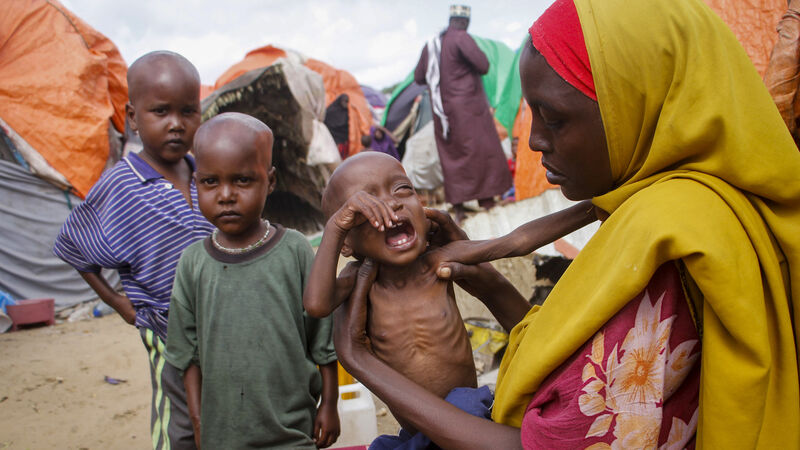Somalia in crisis: Famine should be a word we only associate with history

Maryan Madey, who fled the drought-stricken Lower Shabelle region, holds her malnourished daughter Deka Ali, 1, at a camp for the displaced on the outskirts of Mogadishu, Somalia, on Saturday, September 3. Picture: AP Photo/Farah Abdi Warsameh
This week, our worst fears have been realised. The Somalia Food Security and Nutrition analysis report shows concrete indications that famine will occur in two areas of South-Central Somalia between October and December of this year, the first time that famine has occurred on such a scale since 2011.
Famine should be a word we only associate with history. The progress in human civilisation, food production, and distribution means that no one should go hungry anymore, wherever on earth they are located.
CLIMATE & SUSTAINABILITY HUB
















